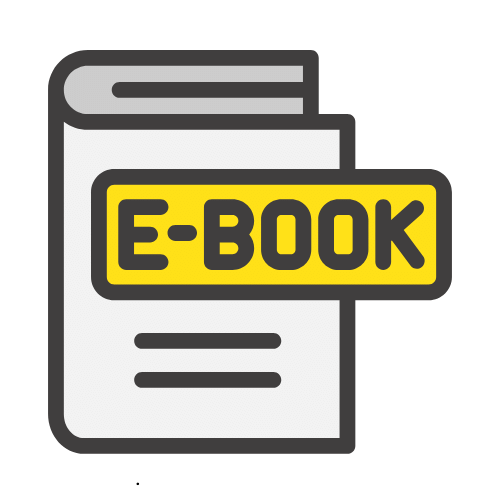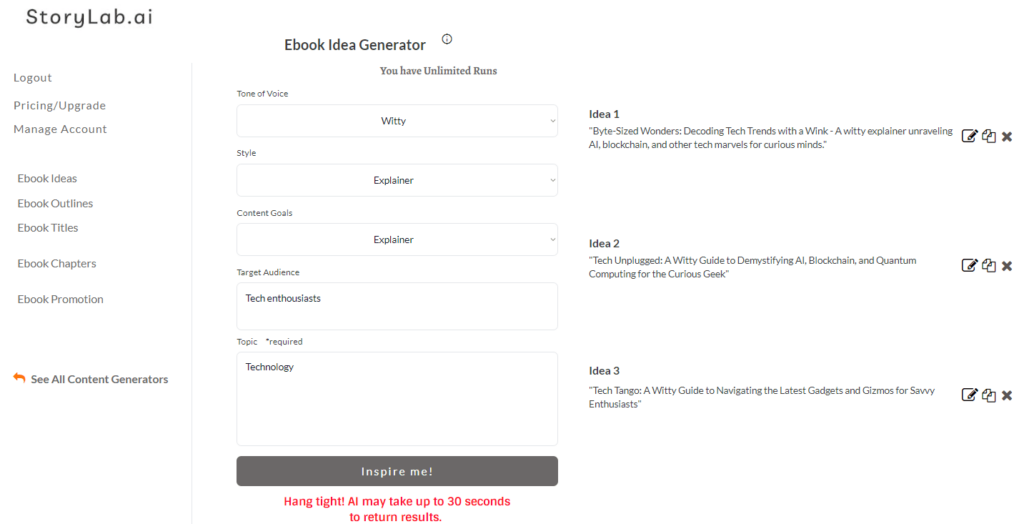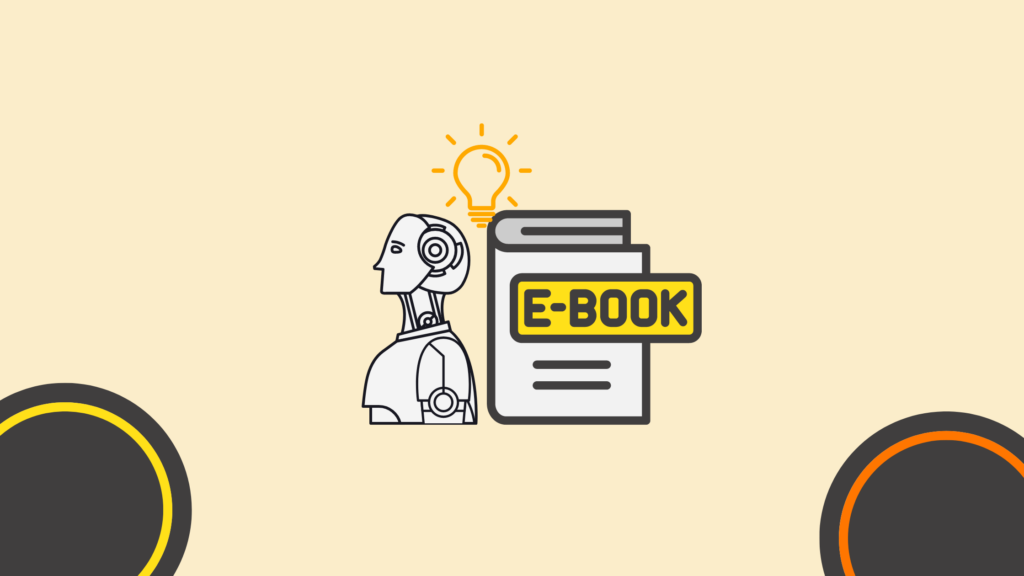100+ Technology eBook Idea Examples [+ AI eBook Idea Generator]

Are you looking to write an eBook in the Tech space? Check out these Technology eBook Idea Examples and our AI eBook Idea Generator to create bespoke eBook Ideas.
Writing an eBook takes a lot of time and resources. You want to make sure you’re investing your resources in the right ideas. Let these 100+ Technology eBook Ideas Inspire you and use AI to come up with more ideas from various angles.
Let’s get into it!
Chapters
Using and eBook Idea Generator
Before we go into the Technology eBook Idea Examples, let’s quickly have a look at our AI eBook Idea Generator.
You can start for free within seconds and get AI to help you come up with awesome eBook ideas for your next project. Spell check features ensure that texts are always perfect!
Simply describe what your eBook is about and let AI work its magic.
Here’s what it looks like:

Technology eBook Idea Examples
- The Evolution of Artificial Intelligence: From Theory to Practice
- Blockchain and Cryptocurrencies: The Future of Finance
- The Internet of Things (IoT): Connecting the World
- Cybersecurity in the Digital Age: Protecting Your Data
- Quantum Computing: Revolutionizing Problem Solving
- The Rise of Augmented Reality: Applications and Impacts
- Big Data and Analytics: Transforming Business Decisions
- The Impact of 5G Technology on Communication
- Smart Homes: Automation and Integration for the Future
- The Role of Technology in Healthcare: Innovations and Challenges
- Digital Transformation: Strategies for Success
- The Future of Work: Remote Working and Digital Collaboration
- Robotics: From Industrial Automation to Personal Assistants
- Ethical Considerations in Artificial Intelligence Development
- Self-Driving Cars: Technology and Regulation
- The History and Future of Personal Computing
- Virtual Reality: Creating Immersive Experiences
- Cloud Computing: Services, Security, and Scalability
- The Intersection of Technology and Education: eLearning and Beyond
- Renewable Energy Technologies: Innovations for a Sustainable Future
- The Role of Technology in Modern Marketing
- Artificial Intelligence in Customer Service: Chatbots and Beyond
- The Future of Entertainment: Streaming, Gaming, and Virtual Worlds
- The Role of Technology in Supply Chain Management
- The Impact of Social Media on Society and Communication
- Biotechnology: Innovations Shaping the Future of Medicine
- The Role of Technology in Climate Change Mitigation
- Fintech Innovations: Changing the Landscape of Banking
- The Future of Wearable Technology
- The Role of AI in Content Creation and Curation
- Smart Cities: Integrating Technology for Urban Development
- The Impact of Technology on Traditional Retail
- The Future of Telecommunications: Trends and Predictions
- The Role of AI in Predictive Analytics and Decision Making
- The Evolution of Mobile Technology: From 1G to 5G
- Technology in Sports: Enhancing Performance and Experience
- The Future of E-Commerce: Trends and Innovations
- The Role of AI in Language Translation and Communication
- The Impact of Technology on Personal Privacy
- Advances in Space Technology: Exploring New Frontiers
- The Role of AI in Fraud Detection and Prevention
- The Future of Human-Computer Interaction
- The Impact of Technology on the Music Industry
- The Role of AI in Healthcare Diagnosis and Treatment
- The Future of Digital Payments and Cryptocurrency
- The Role of Technology in Enhancing Agricultural Productivity
- AI and Machine Learning in Business: Use Cases and Benefits
- The Impact of Technology on Globalization and International Trade
- The Role of Technology in Disaster Response and Recovery
- The Future of Educational Technology: Trends and Innovations
- The Future of Artificial Intelligence in Creative Industries
- Sustainable Tech: Innovations in Green Technology
- Edge Computing: Bringing Data Processing Closer to the Source
- The Role of AI in Predictive Maintenance
- Digital Twins: Simulating Real-World Systems
- The Impact of Technology on Real Estate and Property Management
- 3D Printing: Revolutionizing Manufacturing and Beyond
- The Evolution of Social Networks: From Friendster to TikTok
- Tech Startups: How to Build a Successful Technology Company
- The Role of AI in Personalized Medicine
- The Future of Mobile Payments and Digital Wallets
- The Role of Technology in Enhancing Public Safety
- AI in Financial Services: Applications and Benefits
- The Role of Technology in Modern Warfare
- The Impact of Technology on the Food Industry
- Virtual Assistants: The Future of Personal Productivity
- The Role of AI in Supply Chain Optimization
- The Future of E-Government Services
- The Impact of Technology on Human Rights
- The Role of AI in Environmental Monitoring
- The Future of Technology in the Travel Industry
- The Role of Technology in Enhancing Customer Experience
- The Future of Technology in Retail: Omnichannel Strategies
- The Role of AI in HR and Recruitment
- The Impact of Technology on Traditional Media
- The Role of Technology in Political Campaigns
- AI and Ethics: Balancing Innovation with Responsibility
- The Future of Smart Healthcare Devices
- The Role of AI in Marketing Automation
- The Impact of Technology on Mental Health
- The Future of Biometric Technology
- The Role of Technology in Sustainable Agriculture
- The Future of Space Exploration: Technology and Missions
- The Impact of Technology on the Gig Economy
- The Role of AI in Drug Discovery and Development
- The Future of Renewable Energy: Solar, Wind, and Beyond
- The Role of AI in Enhancing User Experience
- The Future of Autonomous Systems
- The Impact of Technology on Human-Computer Interaction
- The Role of AI in Enhancing Cybersecurity
- The Future of Smart Textiles and Wearable Technology
- The Impact of Technology on Personal Finance Management
- The Role of AI in Media and Entertainment
- The Future of Digital Health Records
- The Role of Technology in Addressing Global Challenges
- The Impact of Technology on Traditional Publishing
- The Role of AI in Enhancing Sports Performance
- The Future of Smart Transportation Systems
- The Impact of Technology on the Legal Industry
- The Role of AI in Enhancing Educational Outcomes
- The Role of AI in Climate Change Prediction
- The Future of Home Automation: Smart Devices and Systems
- The Impact of Technology on Cultural Heritage Preservation
- AI in Healthcare: Revolutionizing Patient Care and Treatment
- The Future of Robotics in Everyday Life
- The Role of AI in Predictive Policing
- The Impact of Technology on the Automotive Industry
- The Role of Technology in Enhancing Accessibility for the Disabled
- The Future of Virtual and Hybrid Events
- The Impact of Technology on Family Dynamics
- AI in Retail: Enhancing Customer Experience and Operations
- The Role of Technology in Crisis Management
- The Future of Digital Identity Verification
- The Impact of Technology on Personal Safety
- The Role of AI in Enhancing Workplace Productivity
- The Future of Biodegradable and Sustainable Technology
- The Impact of Technology on Youth Education
- The Role of AI in Enhancing Disaster Preparedness
- The Future of Telemedicine and Remote Healthcare
- The Impact of Technology on the Music Creation Process
- The Role of AI in Enhancing Video Game Development
- The Future of Personalized Learning through Technology
- The Impact of Technology on Traditional Banking
- The Role of Technology in Enhancing Small Business Operations
- The Future of AI in Predicting Consumer Behavior
- The Impact of Technology on Community Building
- The Role of AI in Enhancing Legal Research
- The Future of Smart Manufacturing
- The Impact of Technology on Artistic Expression
- The Role of Technology in Enhancing Urban Planning
- The Future of Quantum Cryptography
- The Impact of Technology on Remote Work Cultures
- The Role of AI in Enhancing Patient Diagnostics
- The Future of Tech-Enhanced Storytelling
- The Impact of Technology on Job Market Trends
- The Role of AI in Space Exploration Missions
- The Future of Technology in Reducing Carbon Footprints
- The Impact of Technology on Aging Populations
- The Role of AI in Enhancing Personalized Marketing
- The Future of Tech-Driven Customer Support
- The Impact of Technology on Family Healthcare
- The Role of AI in Enhancing Supply Chain Visibility
- The Future of Technology in Autonomous Drones
- The Impact of Technology on Fitness and Wellness
- The Role of AI in Enhancing Media Personalization
- The Future of Blockchain Beyond Cryptocurrency
- The Impact of Technology on Early Childhood Education
- The Role of AI in Enhancing Scientific Research
- The Future of Smart Home Security Systems
- The Impact of Technology on Political Activism
How to Come up With Great Technology eBook Ideas

Coming up with great technology eBook ideas requires a mix of creativity, research, and understanding of current trends. Here are some steps to guide you in generating compelling technology eBook ideas:
- Identify Your Interests and Expertise: Start by considering the areas within technology that you are passionate about or have expertise in. This will make the writing process more enjoyable and credible.
- Research Current Trends: Stay updated with the latest trends and developments in the technology sector. Follow industry news, blogs, and journals to identify emerging topics that are gaining attention.
- Understand Your Audience: Think about who your target audience is and what their interests and pain points are. Understanding your audience will help you tailor your content to meet their needs and preferences.
- Analyze Popular Content: Look at bestselling technology eBooks, popular articles, and trending topics on social media and forums. Analyzing what content resonates with readers can provide insights into what might work for your eBook.
- Brainstorm Ideas: Take some time to brainstorm a list of potential topics. Don’t worry about filtering them initially; just let your ideas flow. You can refine them later.
- Use Idea Generation Tools: Utilize AI tools and online resources like StoryLab.ai’s eBook Idea Generator to get fresh and diverse ideas. These tools can provide new perspectives and inspiration.
- Identify Gaps in Existing Content: Look for gaps or underserved topics in existing technology literature. Finding areas that have not been extensively covered can help you carve out a niche.
- Consider Practical Applications: Think about practical applications of technology in various industries. Topics that provide actionable insights or solve real-world problems can be highly appealing.
- Seek Feedback: Discuss your ideas with peers, mentors, or potential readers. Getting feedback can help you refine your concepts and choose the most promising ones.
- Combine Topics: Sometimes, combining two or more related topics can create a unique and compelling idea. For example, exploring the intersection of AI and healthcare or blockchain and supply chain management.
- Focus on Future Trends: Consider writing about future trends and predictions in technology. Readers are often interested in what the future holds and how they can prepare for it.
- Draw from Personal Experience: If you have personal experience with a particular technology or project, sharing your insights and lessons learned can make for an engaging and authentic eBook.
- Create Outlines for Top Ideas: Once you have a shortlist of potential topics, create brief outlines for each. This will help you assess the feasibility and depth of each idea.
- Prioritize and Select: Evaluate your ideas based on factors such as your interest, audience demand, and the availability of resources. Prioritize and select the topic that stands out the most.
- Stay Flexible: Be open to evolving your idea as you delve deeper into research and writing. Flexibility can lead to more refined and comprehensive content.
By following these steps, you can generate great technology eBook ideas that are both relevant and engaging for your audience.